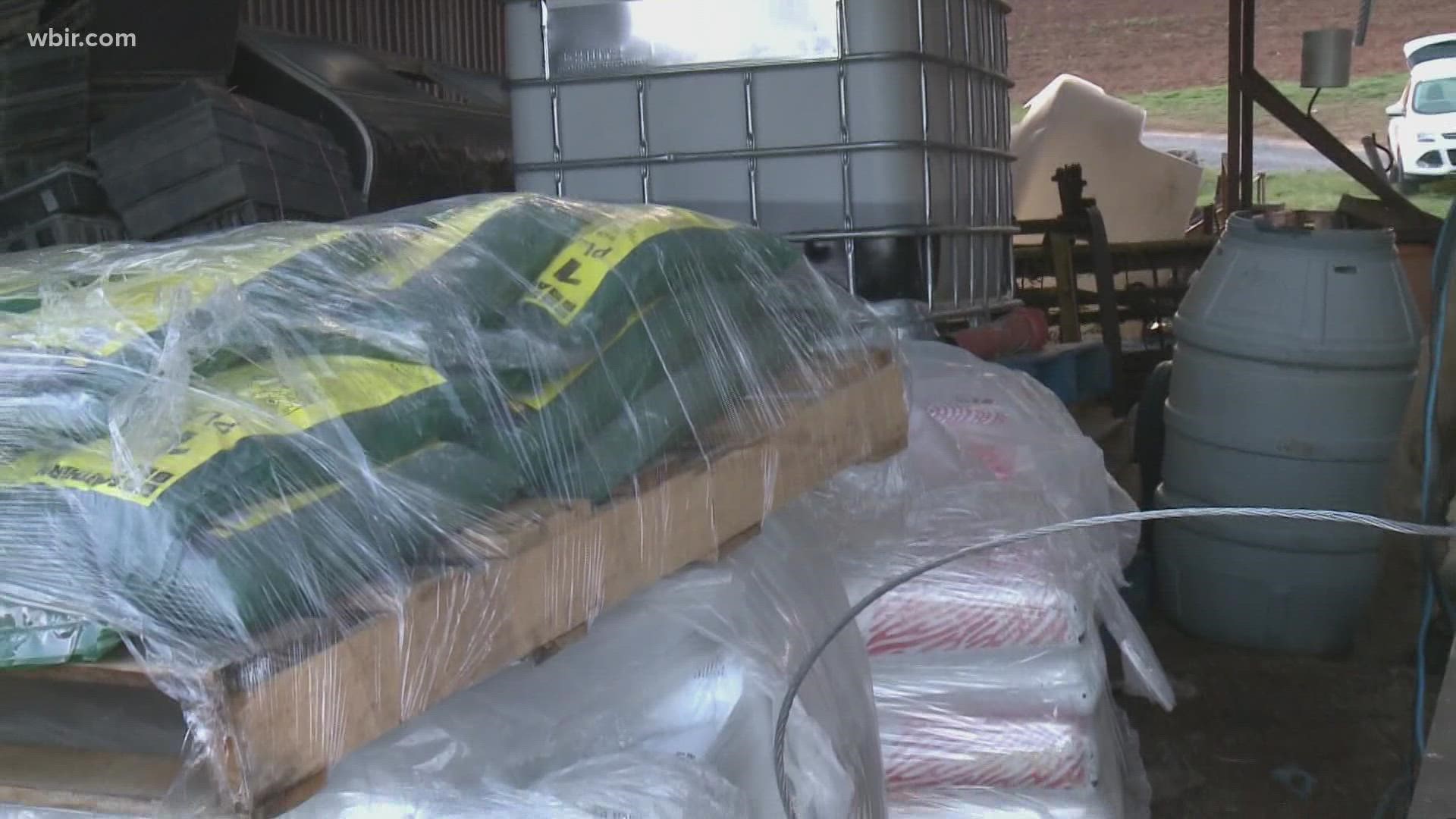GRAINGER COUNTY, Tenn. — The farming industry is facing higher prices across the board, eating into revenue for farmers. Gas, fertilizer, plastic and feed are all getting more expensive which could impact farmers getting crops into the ground and ultimately food on families' tables.
On B&B Farms in Grainger County, Brandon Williams said it takes a lot of energy to grow a crop. They primarily raise tomatoes but he said they also grow cabbage, cucumbers and raise livestock. Initial input costs are needed for fertilizer, fuel, plastics and other chemicals.
"A lot of people don't know what it costs," he said. "Running our trucks to deliver, [driving] tractors, I mean I pump 100 gallons of diesel."
Lee Maddox works for the Tennessee Farming Bureau Federation, an advocacy organization for farmers, and said they need support.
"We need to pick them up, we need to be thinking about them every day because here in Tennessee, it's our number one industry economically," he said. "In terms of what farmers use mostly is diesel and diesel fuel has gone up dramatically."
Many farmers say they are familiar with risk, just like running any other business. But state officials said the farming industry can directly impact people more than other industries facing similar price hikes. It can result in strained community resources across rural areas as farmers struggle to run their farms. It can also lead to higher prices at the grocery store.
Farmers also can't follow the same kinds of strategies when it comes to making business decisions. Companies in other industries may choose to produce less due to the rising cost of supplies, so they spend less money overall.
However, farmers cannot decide when to plant and whether to plant fewer crops.
"If you're a farmer, you can't wait," said Maddox. "When it's time to plant, it's time to plant. When it's time to harvest, it's time to harvest and if you're not ready, you're out of luck."
The Tennessee Farm Bureau asked farmers to call lawmakers and speak with them about their needs, spurring change in the costs of goods.

